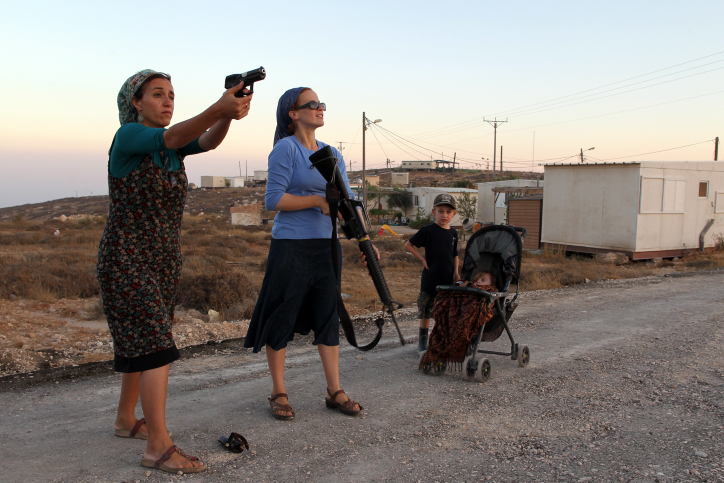
Government lawyers admitted Sunday that a Justice Ministry unit failed to investigate significant issues before issuing a title deed for East Jerusalem land to a Jewish trust — a move that would mean the eviction of the local Palestinians.
The case involves 5.5 dunams (1.4 acres) of land in the Silwan neighborhood where about 700 Palestinians live. The deed was issued to the Benvenisti Trust, which was established about 120 years ago to provide homes in Jerusalem to Jews from Yemen.
The trust is now controlled by Ateret Cohanim, a nonprofit group that encourages Jews to move to predominantly Palestinian neighborhoods of East Jerusalem.
At the High Court of Justice on Sunday, the government acknowledged that the Justice Ministry’s administrator general — formerly called the custodian general — had not investigated the nature of the trust, the Ottoman-era law that applies in the case, or the condition of the buildings now on the land before issuing the title deed in 2002.
The government’s lawyers have urged the court to dismiss the petition challenging the eviction, citing technical grounds.

Residents of Silwan at Israel's High Court, June 10, 2018.Emil salman
Avi Segal, a lawyer representing the Benvenisti Trust and Ateret Cohanim, said the Palestinian petitioners’ claim should be dismissed because the petitioners were all aware of the issuance of the title deed to the trust many years ago but only filed their petition amid concerns they would lose separate eviction cases.
Segal also claimed that the High Court is not an appropriate forum for hearing testimony including expert testimony.
The petitioners seeking to halt the eviction claim that the original trust and the recent transfer of the title deed pertained to buildings that were on the land in the 1940s, but not to the land itself. They say this is based on the law of the Ottoman authorities who ruled the country when the trust was created. The buildings, the petitioners claim, were put up in the 19th century and were torn down before 1948, when Israel was established.
As a result, they say, the trust’s ownership should be voided and the eviction halted because the trust owned buildings that no longer exist, not the land.
The petition was submitted by residents of the Batan al-Hawa section of Silwan on behalf of some 70 families who are slated for eviction from homes now standing on the land. The title deed issued to the trust was awarded about a year after Ateret Cohanim took over the trust.

An Israeli flag hangs on the wall of a building that was taken over by settlers in the East Jerusalem neighborhood of Silwan in 2016.Olivier Fitoussi
The petitioners cited a legal opinion issued by the administrator general itself in a similar case relating to the East Jerusalem neighborhood of Sheikh Jarrah, in which the positions were reversed. In that case, the trust administrating the land was Muslim and sought to prevent the eviction of Palestinian families. The administrator general said the trust’s rights to the land were invalid, citing the same Ottoman laws.
At the end of Sunday’s hearing, Segal asked that the High Court’s decision be expedited, noting that a raft of eviction cases relating to the land in question were being delayed due to the High Court petition. One of the justices hearing the case, Daphne Barak-Erez, said a decision on this would come shortly.
The administrator general has hired Segal to handle the eviction of Palestinians in other cases. The administrator's office said at the time that Segal’s office was chosen to handle the Jerusalem area following a bidding process in which its expertise played a role.
“My office represents the administrator general in eviction cases against intruders and trespassers at properties legally transferred to the administrator general,” Segal said.

The evacuation of a Palestinian family in Silwan, April 8, 2018. Emil Salman
He took exception to the claim that the cases should be described as involving “evictions of Palestinian families from their homes.”
At the end of the hearing, a lawyer for the petitioners, Muhammad Dahleh, referred to the 700 Palestinians threatened with eviction. “How is it possible to evict them based on such a poor procedure, a procedure that the state today acknowledges making a mistake in?” he asked.
Justice Barak-Erez responded that the “simple question is whether this court is the appropriate place for this hearing.”
Dahleh said the basis for all eviction cases was the title deed issued by the administrator general in 2002, adding that the state knew that the move would affect dozens of families living on the land but never sought their input.
Sources: Haaretz, TimesOfIsrael
0 comments:
Post a Comment
Please type your comment, Note that comments are monitored and no Zionists are allowed.